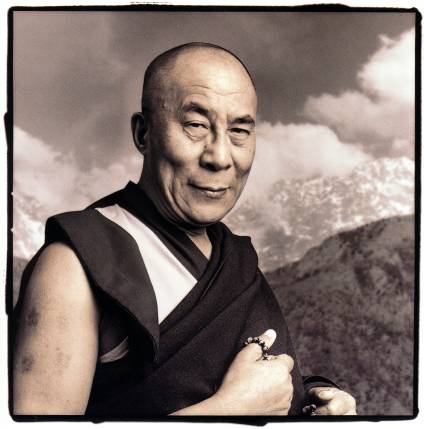No stranger to controversy, Paul Hewson built two of his passions into dual careers that have brought him fame, a sort of infamy, and created enormous value for those the world over.

I have to admit I didn’t recognize him nor know much about his music or his social activism when I ran into him accidentally in New York. I was standing at a reception, when this sort of shaggy, Irish-sounding bloke burst into the conversation wearing the kind of see-through sunglasses rock star wannabes often wear. After a few moments, though, it was clear that the joke was on me: he was Bono, as Paul Hewson is affectionately known, erupting with infectious enthusiasm and playful banter that would steal the show. As it turned out, the new century’s odd couple of philanthropic activism, Bono and Bill Gates, were there to announce their latest HIV initiative.
The Paranoid Survive, But the Passionate Prosper
Three decades ago, Bono saw an ad to form a band that, after the usual artistic fits and starts, eventually exploded to become the enormously popular U2. In both his music and his social activism, Bono takes on the biggest of issues: love and hate, life and death, power and politics.
Today, he faces criticism about whether his main love, music, and his second passion, social activism, might both be losing their progressive edginess in favor of self-promotion or political correctness as deference to his growing circle of rich, famous and powerful friends.
“Aren’t you sleeping with the enemy?” an anonymous bystander took a cheap shot as we walked quickly down the hall, rushing to another meeting.
The jab was in reference Bono’s high profile hobnobbing with the suits, crashing on Bill Gates’ couch or holding court with Presidents Bush and Clinton.

Bono ignored the provocation and then attacked as if he had started the argument: “Do you really want these ideas to die?” he snapped. “It’s an everyday holocaust. Twenty-five million Africans who are HIV-positive will leave behind 40 million AIDS orphans by the end of the decade.”
He stopped for a moment in the hallway. His temperature dropped as he sighed, turning from adversary to recruiter.
“It’s time we all got a bloody grip on this, don’t you think? It’s pathetic, gutless really. It doesn’t have to be this way. We can do something about this.”
Bono, along with his pals, Bill and Melinda Gates, were named Time Magazine’s Persons of the Year in 2005 for their unlikely but extraordinary alliance in rallying otherwise adversarial economic and political powers to have an enormous value impact on global social issues.
Every Passion Counts
Rich people have been giving piles of money away to good causes for generations, but it’s obvious when you sit down with Gates and Bono that they’re passionate about using their resources and positions as public figures to double the value of traditional philanthropy.
“I have no interest in cocktail parties,” Bill Gates will tell you.

Whether sitting on the mud floor of a hut in Africa, or sipping champagne with the rich and famous in Washington D.C., Gates and Bono have learned how to work the system in government and business to get tangible results.
“We let our own pathetic excuses about how it’s ‘difficult’ [to make social change really happen] justify our own inaction,” Bono told the World Association of Reporters, entreating the media and public to get with the program. “Be honest: we have the science, the technology, and the wealth. What we don’t have is the will, and that’s not a reason that history will accept.”
Gates and Bono have been relentless in doing whatever has mattered to them in their lives, but have also always found ways disrupt the standard approach in order to build new and world-changing value. This time, they’re on a historic mission that’s a far cry from their beginnings: make change in parts of the world where things haven’t gotten better for generations.
For those who are committed to creating and doubling their value, there is not just one thing to do with their life. Every passion counts.





 It might mean you need to create time to be a stay-at-home parent, or refurbishing
It might mean you need to create time to be a stay-at-home parent, or refurbishing